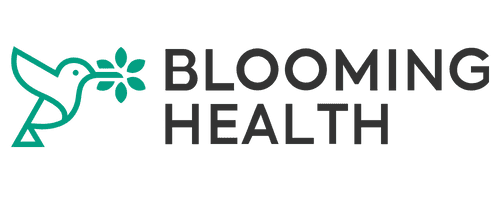May 12, 2025
Discover how cutting-edge innovations like AI, virtual reality, and geroscience are transforming aging care.
In the final keynote of Blooming Day 2025, Dr. Mark Lachs, Professor of Medicine at Weill Medical College of Cornell University, and Director of Geriatric Medicine for the New York-Presbyterian Health System delivered a talk that left attendees both laughing and thinking hard. His topic? The most devastating disease he treats as a geriatrician: loneliness.
And his prescription? A bold blend of science and personal connection.
The Case for Human Connection in Aging
Dr. Lachs opened with a powerful truth: while his patients might have long lists of diagnoses—diabetes, arthritis, hypertension—what matters most is function: Can they live the life they want? Can they get out of bed? Can they connect with others?
In his view, no amount of clinical skill can substitute for understanding a patient’s social context. And in a rapidly aging society where 1 in 3 adults feels lonely and millions are aging in place without family nearby, that context is growing more urgent.
Three Innovations Shaping the Future of Aging
1. Geroscience
Dr. Lachs spotlighted the emerging science of aging—and how we might not just live longer, but live better in those years. He highlighted Metformin, a generic diabetes drug now being studied to delay age-related diseases and potentially extend “healthspan,” not just lifespan. And he didn't shy away from the excitement brewing in the field: dozens of “senolytic” drugs are in development.
2. Virtual Reality
We saw jaw-dropping examples of VR being used to connect older adults—some of whom hadn’t left their homes in a decade. They strolled through the Duomo in Florence and floated in hot air balloons, all through a headset. One group even exchanged numbers and became friends offline. Low cybersickness. High joy. Who says digital can’t be intimate?
3. Artificial Intelligence
With humor and honesty, Dr. Lachs walked through the paradoxes of AI and aging. AI tools like ChatGPT and Alexa can help older adults navigate complex decisions—from Medicare plans to financial choices—but only if designed with them in mind. He warned of “AI hallucinations” and overwhelming menus (“Diner Menu-Induced Panic Attacks”), but ultimately championed AI’s potential for:
Early detection of cognitive changes through daily tech usage.
Just-in-time medication support based on location data.
Home sensors that detect changes in movement, fridge use, or daily routines—keeping families informed while protecting dignity.
One Final Takeaway: Your Mindset Matters
Perhaps the most surprising (and inspiring) revelation? Your perception of aging—how you think about growing older—can add seven years to your life. Backed by decades of research, Dr. Lachs showed that people with positive views on aging live longer, even when adjusting for health and socioeconomic factors.
His closing quote from Will Rogers said it best: “One must wait until evening to realize how splendid the day has been.”
Why It Matters for Your Organization
Dr. Lachs' message aligns deeply with our mission: to combine high-tech tools with human-centered care that sees and supports underserved populations. At Blooming Health, we’re building solutions to fight loneliness, streamline support, and extend wellness, not just life.
Want to learn how Blooming Health supports organizations that care for older adults? Contact us today or check out more of our impact stories.








